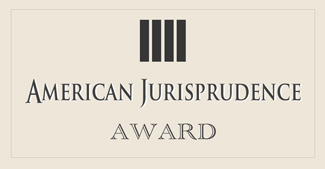
Abandoning a child in Utah is a felony. If you are convicted of this offense, the punishments can be very severe. Your sentence can include a long prison term and financially ruinous fines. But, you may not have even realized that what you did could be interpreted as child abandonment. After all, what actually constitutes that crime? How long is a child left alone before the state considers him or her abandoned? Here, we’ll discuss what happens if you are charged with the crime and how long you can leave a child unattended without the risk of being prosecuted for child abandonment.
Click to jump to section:
- How Long Alone is Child Abandonment?
- Punishments for Child Abandonment in Utah
- Additional Consequences for Child Abandonment
- Defenses Against Abandonment Charges
- Aggressive Criminal Defense Attorney
If you are charged with child abandonment, contact Wasatch Defense Lawyers, Salt Lake City Utah for help as soon as possible. Do not give your statement to the police until you receive advice from your lawyer.
How Long Alone is Child Abandonment?
How long is too long to leave a child at home alone, waiting in a car, or at another location without adult supervision and/or information about when you will return? It can be confusing to assume what a reasonable time limit may be in such cases, after which you will face charges for child abandonment. So, you need to prepare the best possible defense going into the district courts of Utah.
Under Utah Code 76-5-109, child abandonment is defined as a parent or legal guardian with custody of a child (a person under age 18), leaving the child for 30 days or longer.
EXCEPTION: Utah Code 76-5-109(1)(b)(ii) explicitly states to relinquish a child in a safe location and conditions is not an act of child abandonment (62A-4a-802).
Punishments for Child Abandonment in Utah
In Utah, child abandonment is a criminal offense that can lead to extremely severe legal, financial, professional, social, and domestic consequences. The crime of child abandonment is always either a Third or Second Degree felony:
| 3rd Degree Penalties | The sentence for a Third Degree felony conviction is a maximum of 5 years and/or a maximum fine of $5,000. |
| 2nd Degree Penalties | The sentence for a Second Degree felony conviction is a maximum of 15 years and/or a maximum fine of $10,000. |
Additional Consequences for Child Abandonment
Beyond the comparatively much tougher penalties in felony cases, there are added difficulties for people found guilty of child abandonment. As a convicted felon in Utah, you become a “restricted person.” That means you lose certain rights, including the right to own a gun. You can also be prohibited from many opportunities. For example, you may be barred from some organizations (like the U.S. military) and unable to work in your desired civilian field. You might also be blocked from living in your preferred neighborhood.
Further, a conviction for child abandonment can be irreparably damaging to a person’s closest relationships with friends, neighbors, and relatives and can destroy immediate family bonds.
As you see the consequences mounting to great extremes in such cases, it’s clear that as a defendant in a child abandonment case, you need the best criminal defense lawyer you can get.
Defenses Against Abandonment Charges
There are numerous reasons why parents who never had an intention of abandoning their children end up being charged with this crime. For example, in some cases, the other parent in a divorce may have accused his or her ex of abandoning the children as part of a strategy to try to get a custody order modified. Or, a neighbor may have had some unrelated issue with one of the parents and made the accusation of child abandonment as a retaliatory tactic.
Those situations are shocking and terrifying for the defendant. Having an experienced and highly-skilled attorney building your defense against child abandonment charges is critical.
If You Face Charges for Abandoning a Child, We Can Help!
We represent defendants in misdemeanor and felony cases of alleged child abandonment, child abuse, sex crimes against children, and other serious legal predicaments. These extreme allegations require immediate attention to protect your rights and build an effective defense.



